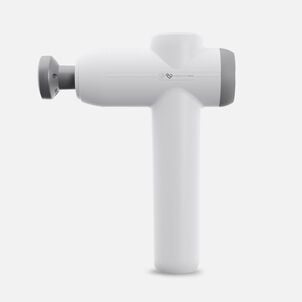Can you have more than one HSA?
This is a very common question from our customers, so let's lead with the short answer: Yes, you can have more than one health savings account (HSA). But it's important to understand the pros and cons of having multiple accounts, to make sure that you stay in compliance with IRS rules.

HSAs cannot be jointly owned
If two spouses have coverage under one HSA-qualified high deductible health plan (HDHP) and meet the rest of the IRS requirements for HSA eligibility, they can establish an HSA in one partner's name and contribute up to the family maximum amount to that spouse's HSA.
A person with individual HDHP coverage can contribute up to $4,150 in 2024 to their HSA, and a person with family HDHP coverage can contribute up to $8,300.
But they also have the option for each spouse to establish their own HSA, and split up the family maximum contribution how they prefer. The IRS notes that the default is to split the contribution limit equally between the two spouses, "unless you agree on a different division."
In this case, each spouse would have their own HSA, but the funds in each HSA could be used for any eligible family members. From a practical standpoint, the family has multiple HSAs, even though each one is technically owned by a single person.
But what if you're single?
Could you have more than one HSA? Again, the answer is "yes." And the family we just considered could have more than two HSAs, if one or both spouses opted to have multiple HSAs.
As long as you have an HSA-eligible health plan, there's no limit on how many HSAs you can have. As far as the IRS is concerned, the only limit is how much money you can contribute to your HSAs each year. You can contribute it all to one HSA, or spread it out across two or more accounts.
Maybe you just want to use more than one brokerage firm or bank. Maybe your employer will contribute some money to your HSA that's established with your employer's preferred HSA administrator, but you'd also like to contribute to an account with one you choose -- maybe one that offers different investment options.
Maybe you have an HSA from a previous employer and you're happy with the HSA administrator, but your new employer offers an HSA from a different one, and you want to maintain both accounts.
A few things to keep in mind...
You can't contribute more than the maximum amount the IRS allows for a given year, regardless of how many HSAs you have. And contributions made by anyone else, including your employer, count towards your total limit.
If you and your spouse both have family HDHP coverage, the family limit applies to your combined contributions. Please note that if you have an adult child who is on your HDHP but not considered a tax dependent, they can contribute to their own HSA (and are not eligible as a dependent under your family HSA as they must be a qualified tax dependent), but it doesn't count against the total family contributions you can make, since they file their own tax returns.
If you have an HSA through your employer, you might be able to avoid income taxes and payroll taxes on any contributions you and/or your employer make to that HSA by contributing pre-tax from pay. If you choose to have another HSA with a different HSA administrator and make your own contributions to it (outside of your employer's payroll system), you'll be able to deduct those contributions on your tax return. When you do that, you'll avoid income tax on the contributions, but you can't avoid payroll tax.
Keeping careful records is a must if you're using an HSA, since the responsibility is on you to prove everything was done correctly if you're ever audited. And if you're using multiple HSAs, the need for careful record keeping is especially important.
You'll need to make sure that you have receipts for the total amount that you're withdrawing from your HSAs, and ensure that there's no double dipping: If you reimburse yourself for a medical expense using one HSA, you can't then reimburse yourself for the same expense from a separate account.
—
Thank you for visiting the HSA Store Learning Center. Don’t forget to follow us for more helpful tips on Facebook, Instagram, and Twitter.


.png)
















